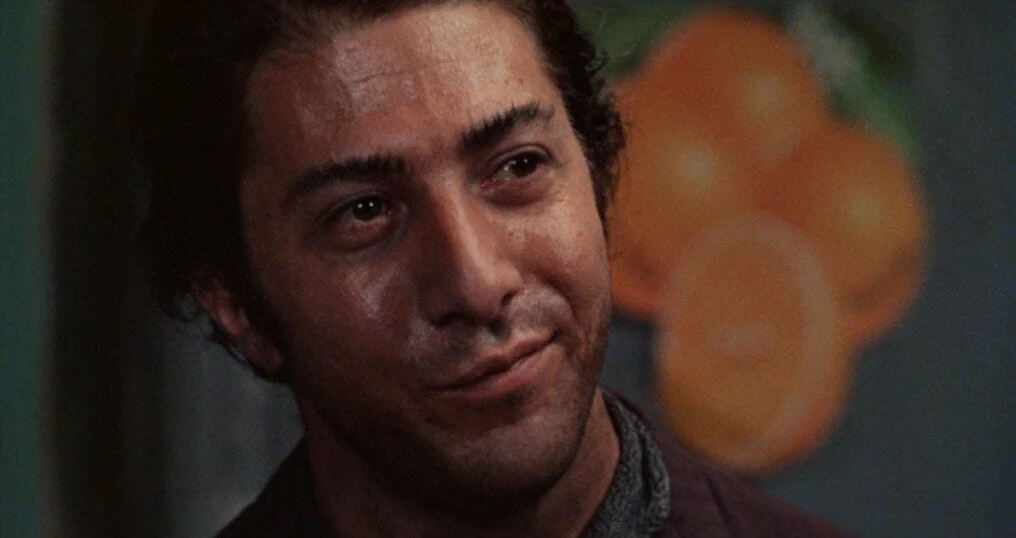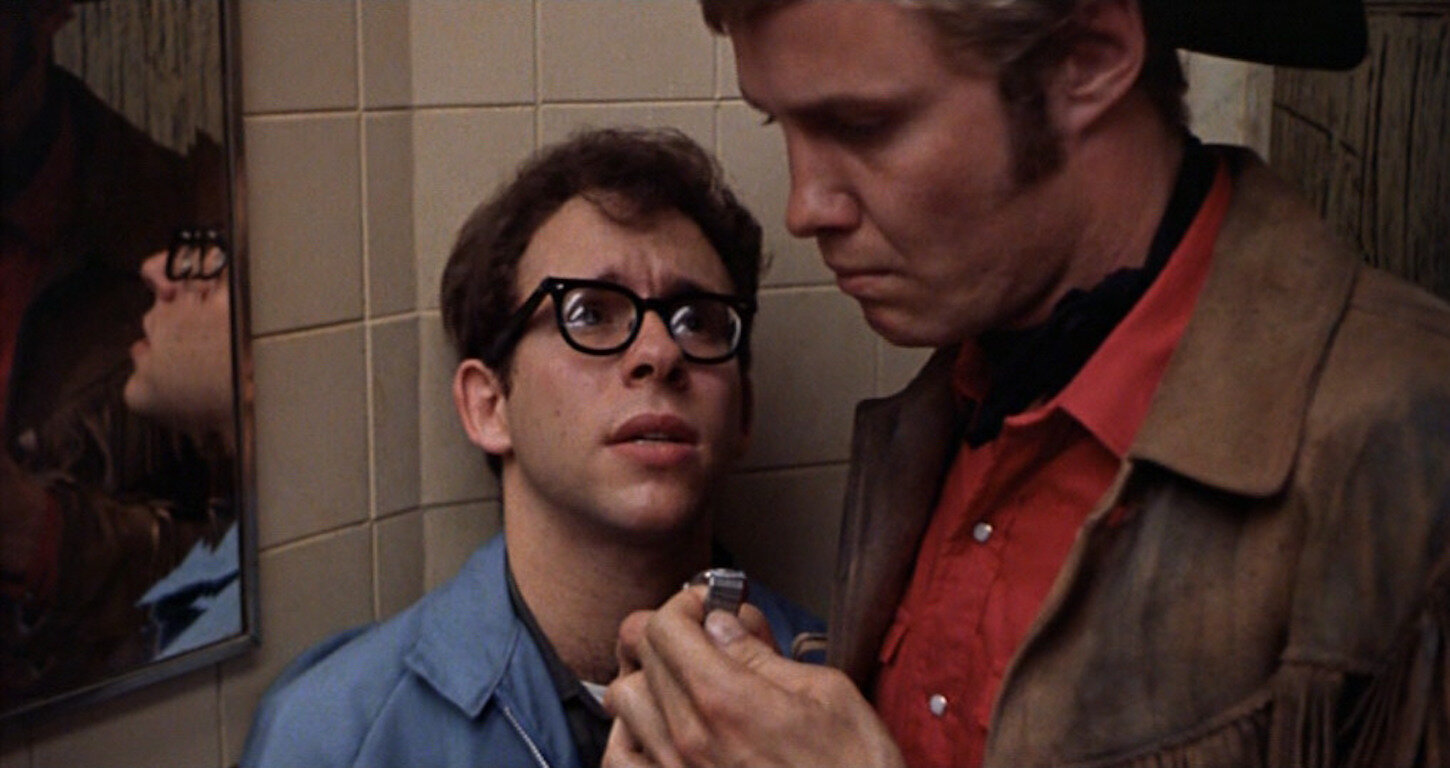Midnight Cowboy (1969)
Written by Waldo Salt
Directed by John Schlesinger
Like a few other films on this list, this review of Midnight Cowboy has taken me a little while to write. I’ll cut right to the chase: I really didn’t like this movie. So, I’ve spent the last week and a half trying to wrap my head around how a movie this bad could win Best Picture. All I come up with is a film whose whole is less than the sum of its parts.
Based solely on Best Pictures, this film takes a giant leap forward in its psychological storytelling. Key moments of the film utilize flashbacks or fantasies to help underscore the characters motivations. There are a few times, however, where the flashback is just for a fleeting moment, making it difficult to connect to it, or even to connect to the moment that’s actually happening. The extended fantasy sequence of Ratso and Joe in Florida is fun, and its a nice break from all the soul-crushing going on here.
Jon Voight as Joe Buck
Since I’ve mentioned Ratso and Joe, I do want to give praise to both Jon Voight and Dustin Hoffman’s performances. I’m not the biggest of Jon Voight’s fans, but he does a pretty good job of portraying being way in over his head, and watching his dreams shatter at every turn. It was harder for me to sympathize with him, because many of his choices are so dumb, but Voight manages the task. Also, it was a shock to see him so young, as I’m very familiar with him in modern roles. Hoffman proves he’s just as flexible as ever, and of the two, I preferred his performance over Voight. It’s maddening not to know what his ailment is, but Hoffman is able to make us not care about what it is, and focus on what it’s doing to him (my guess is either some sort of STD, or pneumonia).
Dustin Hoffman as Ratso
Getting back to just comparing this film against other Best Pictures, this film also takes a giant leap forward in terms of what it depicts. The jump is so shocking, I’d compare it to watching a bunch of Mr. Rogers’ Neighborhood and then watching an episode of Game of Thrones. This film is full of sex, drugs, strong language, and both explicit and implied homosexuality. The first few films on this list, like Wings or The Broadway Melody, mostly those made before the introduction of the Hays Code (which I HIGHLY encourage reading about, it is FASCINATING), featured depictions of female breasts (Clara Bow’s can be seen, albeit briefly, in 1927’s Wings). With the installment of the Code, nudity became forbidden, and the Code would remain in place until 1968, the year before this film was released, when it was replaced with the MPAA, which is still in place today. Suddenly, bare breasts are back on screen (not a lot, but definitely more than there had been).
Joe solicits a man in a movie theater bathroom
The language in the film is very strong, too, and I honestly lost count of the number of times someone used the word “fag” (a word that generally makes me cringe). It at least has a place in the story, as homosexuality plays a significant role in the story, making this film a first on this list. There’s the obvious homosexual acts of Voight’s character Joe receiving oral sex from a man in a movie theater, or picking up a man at a fair in order to rob him (and maybe murder him? Spoiler alert, obviously). But, there’s also the implied homosexuality, especially with Joe being unable to perform with Shirley, his first genuine hustling prospect in months. Once she remarks that he might be gay, he is suddenly able to perform again. How convenient. I’d like to think that after the film’s end, he comes to terms with his sexuality, but given the tone of the film, I’m guessing, probably not.
All of these things added up to make Midnight Cowboy the first (and so far, only) film to be rated X and win Best Picture, although with a restructuring of MPAA guidelines, it’s been re-rated as R.
All of which is fascinating, but it’s also not handled particularly well. The film takes its characters and drives them to the brink, and surrounds the two leads with awful people. The music is uninteresting (“Everyone’s Talkin’” seemingly NEVER STOPS PLAYING), and the cinematography seems like it’s trying to be edgy (and granted, for its time, perhaps it was), and the plot just seems to be a series of melodramatic episodes. And, as good as Voight and Hoffman are, I never once bought that these two would be friends.
Midnight Cowboy was a film I was excited to watch, and I came away from it very disappointed. Edgy and experimental, it focuses on shock and technique, burying a better plot focused on its two stellar lead performances under a lot of unnecessary garbage.
FINAL GRADE: D





